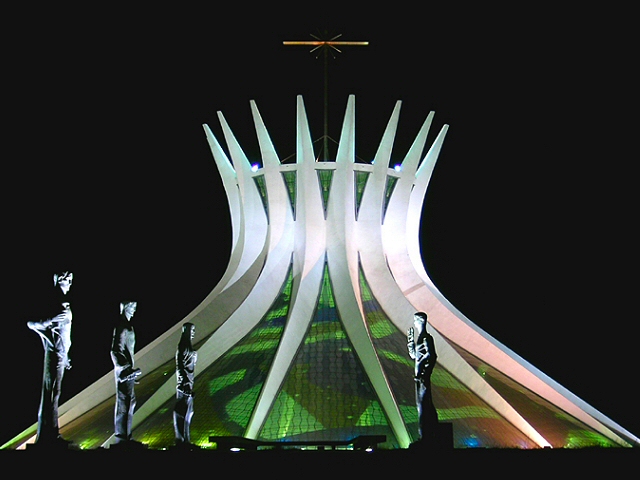2012 Latin American Political Playbook
 2012, by all accounts, will be a year for the history books. Power transitions will occur in the world’s two largest economies. London will host the Olympics. The steady shift in the distribution of world influence away from traditional Western-heavy institutions and toward new multilateral groupings will continue, while the rankings of the world’s largest economies remain in a constant state of flux (due to the failure of the European experiment and burgeoning growth in emerging markets). This is one of the reasons that I believe 2012 will be an exciting year in Latin America. Continuing fallout from the economic crisis has slowed down the new dynamic giants to our South, but growth rates have remained positive. Violent revolutions, which, with a few exceptions, came to be synonymous with Latin America in the twentieth century, are increasingly a thing of the past; peaceful power transfers have largely become the norm. I have written four of my predictions for Latin American politics in the year ahead. It looks to be action-packed, by any measure.
Chávez Wins Reelection Amidst Fraud and International Disgust
2012, by all accounts, will be a year for the history books. Power transitions will occur in the world’s two largest economies. London will host the Olympics. The steady shift in the distribution of world influence away from traditional Western-heavy institutions and toward new multilateral groupings will continue, while the rankings of the world’s largest economies remain in a constant state of flux (due to the failure of the European experiment and burgeoning growth in emerging markets). This is one of the reasons that I believe 2012 will be an exciting year in Latin America. Continuing fallout from the economic crisis has slowed down the new dynamic giants to our South, but growth rates have remained positive. Violent revolutions, which, with a few exceptions, came to be synonymous with Latin America in the twentieth century, are increasingly a thing of the past; peaceful power transfers have largely become the norm. I have written four of my predictions for Latin American politics in the year ahead. It looks to be action-packed, by any measure.
Chávez Wins Reelection Amidst Fraud and International Disgust
Venezuela holds presidential elections this year as well, pitting incumbent international curmudgeon and “Bolivarian Socialist” Hugo Chávez against opposition candidate Henrique Capriles Radonski. Radonski is the current governor of Miranda state (and an iffy Columbia alumnus). Venezuelan opposition parties, while widely-varying in political ideology but uniformly opposed to Chávez, united to elect him as their collective candidate earlier this month. Chávez has amended the Constitution numerous times, eliminating term limits and centralizing power at the expense of press freedoms, human rights, and basic quality of life. He has previously claimed that he will stay in power till 2031. However, opposition groups have reason to feel optimistic. They won a majority of votes in the Parliamentary contest in 2010; however, due to Chávez’s redrawing of districts, they were denied a congressional majority. Chávez himself appears to be taking this latest challenge seriously: He has launched a mud-slinging campaign that has shocked the international community with its anti-Semitic and homophobic attacks. I predict a Chávez win; the system is simply stacked too high against Capriles.
Enrique Peña Nieto Wins Mexican Presidency
Widespread resentment over Mexican President Felipe Calderón’shandling of the drug war in Northern Mexico has inflamed public opinion against his National Action Party (PAN). PAN broke the Institutional Revolutionary Party’s (PRI) 70-year stranglehold on Mexican politics with the election of Calderón’s predecessor, Vicente Fox, in 2000. That election promised a new era of openness in the Districto Federal. But 12 years is a long time, and Nieto has provided a fresh new face to a reenergized party. He leads most polls by a wide margin. However, Calderón’s party has responded by selecting Josefina Vázquez Mota, a 51-year old mother of three, as their candidate. She is the first female presidential candidate of a major Mexican political party.
Hispanic Vote Fails to Show Up Yet Again
This is a big year for us too: The American presidential election will be contested later this fall. As might be expected, coverage of the race is widely broadcast throughout Latin America; I have found my South American friends to be, at times, more informed about US politics than we are. However, the same cannot be said about Hispanic voters at home. In 2009, the United States Census estimated that over the course of four years, the number of Hispanic voters grew by nearly 30 percent. However, raw numbers rarely translate directly into increased participation. In the last decade, the Hispanic population in the United States grew by a whopping 43 percent, the equivalent of 15 million persons. In the Electoral College behemoths of Texas and California, the Census estimated that Hispanics made up 40 percent of the population. However, Hispanic votes only accounted for 7.4 percent of votes in 2008. While the fight over immigration will almost certainly boost Hispanic participation rates, I have a difficult time believing that this long-term behavior will change overnight.
Castro Finally Kicks It
God willing, this is the year Comrade Fidel finally kicks the bucket. Okay, I have no statistical or scientific basis for this prediction; it’s more wistful dreaming than anything else. It’s bound to happen soon, with the rusty 86-year-old revolutionary approaching his 53rd year behind the scenes in Cuba. While his death would mean little in the practical day-to-day “running” of the country (since he ceded power to his brother Raúl in 2006), it would provide a metaphorical ending to a long and painful chapter in the country’s history. Raúl’s government has made overtures to human rights and economic reforms. I predict that the looming end of Fidel will further motivate their implementation, as old members of the Communist Party’s vanguard seek to avoid any large-scale unrest following his death.
